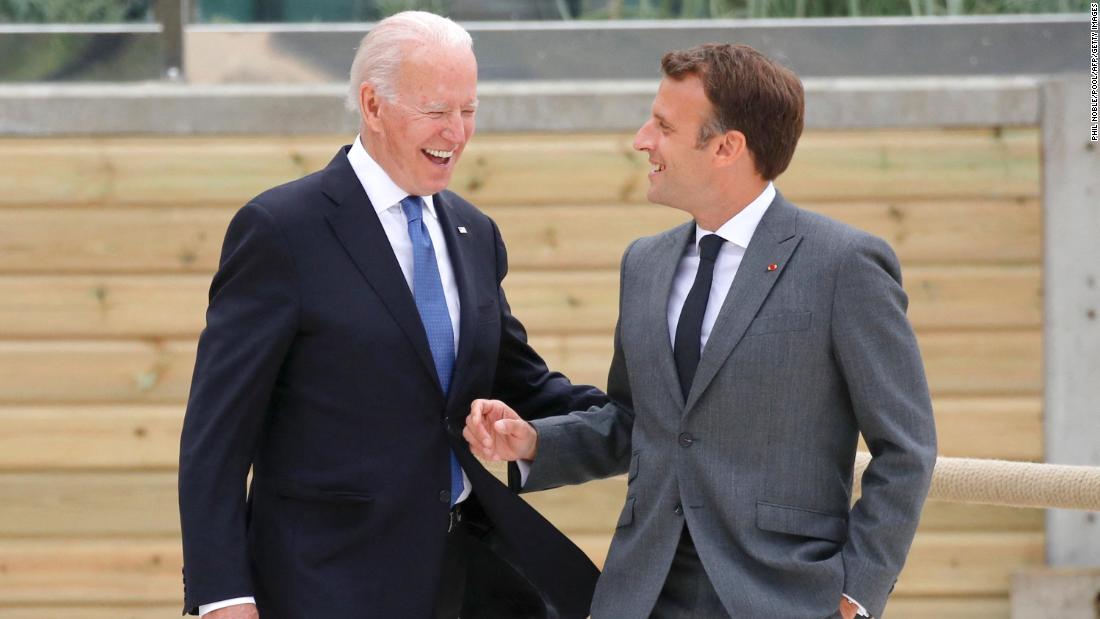Biden aims to counter China’s global infrastructure project
Confronting China’s authoritarianism, however, emerged as a source of contention between the leaders.
The White House said the program, presented as an alternative to China’s own global infrastructure initiative, will “help narrow the $40+ trillion infrastructure need in the developing world, which has been exacerbated by the COVID-19 pandemic.”
A senior administration official described the plan, called the “Build Back Better World” initiative, as a “bold, new global infrastructure initiative with our G7 partners that will be values-driven, transparent and sustainable” and will compete with China’s Belt and Road Initiative.
The G7 will announce “a positive alternative that reflects our values, our standards, and our way of doing business,” a second senior official said.
As part of the new infrastructure announcement, the US said the Group of 7 will be joining partners and the private sector in “collectively catalyzing hundreds of billions of dollars in infrastructure investment for low and middle-income countries that need it.”
Officials described the global infrastructure pitch not as a confrontation with China, but as an alternative path.
“This is not about making countries choose between us and China. This is about offering an affirmative, alternative vision and approach that they would want to choose,” the first administration official said.
And in the coming days when Biden travels to the NATO summit in Brussels, NATO countries will be “addressing the security challenge from China directly in a communique” for the first time, per the first senior official.
A second piece of Saturday’s session, the officials announced, is aimed at targeting China’s forced labor practices.
Biden, the second official said, will be “pressing his fellow leaders for concrete action on forced labor, to make clear to the world that we believe these practiced are an affront to human dignity and an egregious example of China’s unfair economic competition.”
The administration is advocating for China to be specifically named in the final G7 communiqué, though it was unclear if it will ultimately end up in the final agreement that will be released Sunday.
Throughout the G7 in Cornwall, England, this week, Biden has doubled down on initiatives aimed at reasserting US leadership on the world’s stage and confronting China.
While officials at the summit saw the infrastructure as an area of agreement during the summit, leaders aired serious differences over how best to approach China during a session on Saturday, according to a senior administration official.
The disagreements, aired during a session that at one point became so sensitive that all internet was shut off to the room, pitted European nations against the United States, Britain and Canada, who urged stronger action against China for its authoritarian practices, including forced labor practices in western Xinjiang province.
At one point, Biden made a forceful call to other leaders about vocally calling out China’s anti-democratic practices, officials said, emphasizing the need to take action.
Biden underscored during his vaccine announcement that there were no strings attached with accepting the US-bought vaccines. And the White House has said it has been concerned by efforts by Russia and China to use vaccines to make geopolitical gains.
However, Biden’s new call for a global infrastructure program funded by western, developed nations comes as the President faces challenges to stand up his own infrastructure program within the US.
This story has been updated with additional reporting.
CNN’s Kevin Liptak contributed to this report.
![]()


